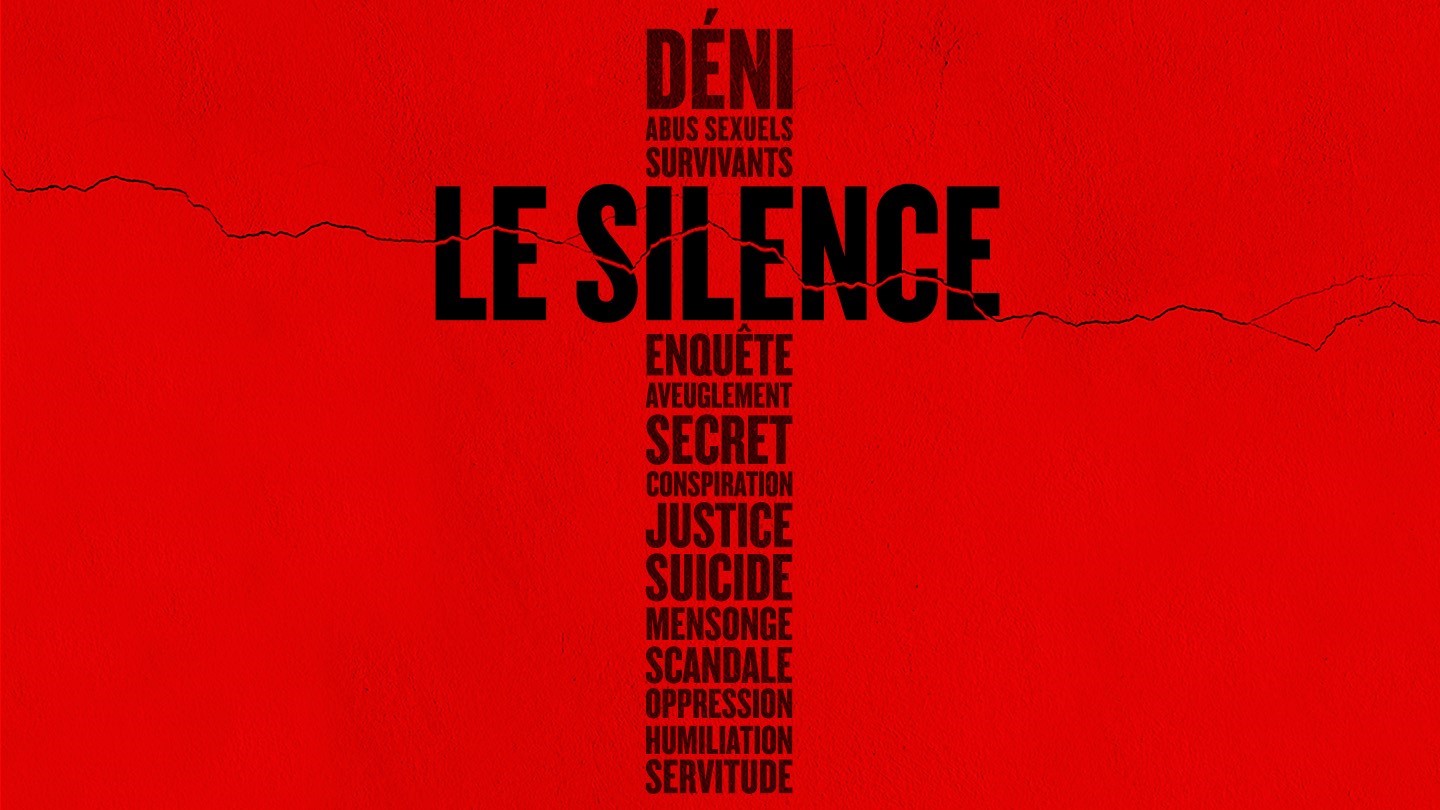
(Images provided by the NFB)
September 16, 2021 – Montreal – National Film Board of Canada (NFB)
Following an award-winning showing at the Rendez-vous Québec Cinéma, Renée Blanchar’s feature documentary Le silence (The Silence) will open in theatres on Friday, September 24. The film will be presented in its original French version in Montreal at the Cinémathèque québécoise, in Quebec City at Cinéma Cartier and Cinéma Le Clap, and in Sherbrooke at the Maison du cinéma. Le silence tackles a difficult topic—the sexual abuse perpetrated by Catholic priests against young boys in francophone New Brunswick—with great sensitivity. Probing the root causes of the collective silence that paralyzed the affected communities for so many years, the veteran Acadian filmmaker offers an enlightened take on a human drama that’s playing out practically across the globe. With pedophilia scandals making the news on a regular basis, the film underscores the unimaginable devastation left wherever such horrors may unfold, be it in Acadia, Quebec or elsewhere. Co-produced by Ça Tourne Productions and the NFB in association with Radio-Canada, Le silence is an urgent call-out to the humanity in each of us.
Blanchar confronts silence with truth to deliver a film that’s shattering, personal and necessary. Deeply rooted in her community, she had unknowingly come close to an abusive priest while shooting her first documentary, Vocation ménagère (1996), in Acadian parishes. This time, flanked by a seasoned team that included cinematographer Philippe Lavalette and sound designer Sylvain Bellemare (whose work on Denis Villeneuve’s Arrival won him an Oscar), the filmmaker went to meet the victims. The heartbreaking testimonials of men like Jean-Paul, Victor and Lowell vividly highlight how the ordeal of abuse destroys lives. Silenced for too long, their courageous decision to finally name their perpetrators brings with it hope for justice and healing.
About the film
Le silence by Renée Blanchar (106 min)
Co-produced by Ça Tourne Productions (Maryse Chapdelaine) and the NFB’s Canadian Francophonie Studio in Moncton (Christine Aubé), in collaboration with Radio-Canada
Awards: La Vague Léonard-Forest Award for Best Acadian Medium-length or Feature Film, FICFA 2020; Award for Best French-Canadian film, Rendez-vous Québec Cinéma 2021
Why be silent about the most serious matters? Doesn’t silence perpetuate suffering? From the 1950s to the 1980s, Catholic priests sexually abused many young boys in the francophone towns of New Brunswick. These scandals only came to light when the victims were in their fifties and older, provoking shock and outrage in the media and the public. Why did the affected communities keep silent so long, preferring secrecy to justice and truth? Using their positions of influence to impose a “pious silence” on their parishioners, some authority figures essentially built a system of abuse that says as much about the oppression experienced by the Acadian population as it does about the blanket denials issued by the Catholic Church—all of which Quebecers can readily understand. Called to confront the power of this collective silence, veteran filmmaker Renée Blanchar meets with survivors in an attempt to untangle the deeply rooted reasons for this secrecy. With Le silence, she takes us as close as she can to the humanity of these broken men, revealing the multiple and far-reaching consequences of silence, not just for the communities affected, but for society as a whole.
About the filmmaker
Filmmaker Renée Blanchar studied cinema in France before returning to develop a successful career in film and television while working from her hometown in New Brunswick. Her work has in many ways blazed a trail not just for Acadian cinema but for women in the film industry everywhere. Renée made her mark in television drama as the director of the series Belle-Baie for five seasons (2008–2012). She’s currently working on a series on the life and work of writer Gabrielle Roy. Like her most recent film, her documentaries are noted for their powerful subject matter and their ability to reveal the depths of the protagonists’ humanity. Le silence (2020), Raoul Léger, la vérité morcelée (Raoul Léger: The Elusive Truth, 2002) and On a tué l’Enfant-Jésus (A Hospital Crucified, 2007) all won the La Vague Prize for Best Acadian Film at the Festival international du cinéma francophone en Acadie (FICFA). Les héritiers du club (A Place That Matters, 2014) and Nos hommes dans l’Ouest (Shadow Men, 2017) have also resonated strongly within and beyond their own milieux. Most of Blanchar’s work has been written and directed from her home base in the city of Caraquet, New Brunswick.
– 30 –
Related Products
Electronic Press Kit | Images, trailer, synopses: The Silence
Associated Links
Rendez-vous Québec Cinéma
Festival international du cinéma francophone en Acadie
Ça Tourne Productions
Radio-Canada
French version here | Version française ici.